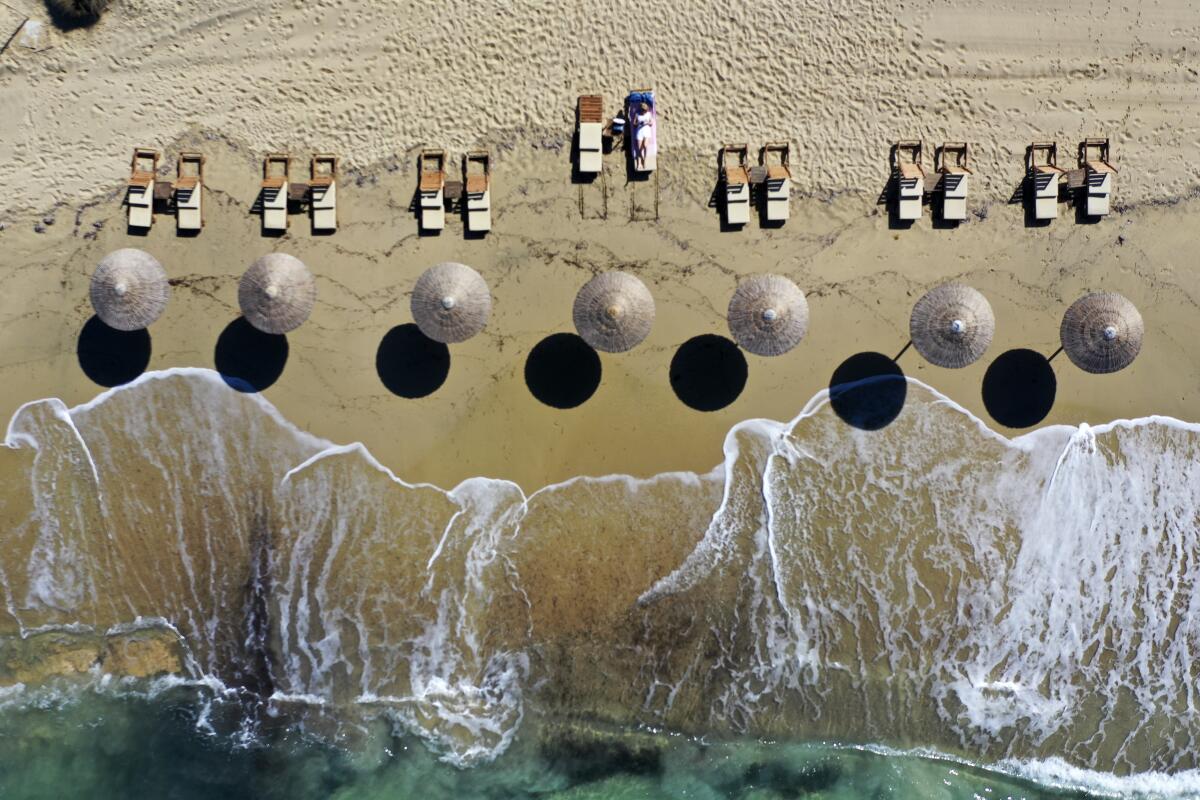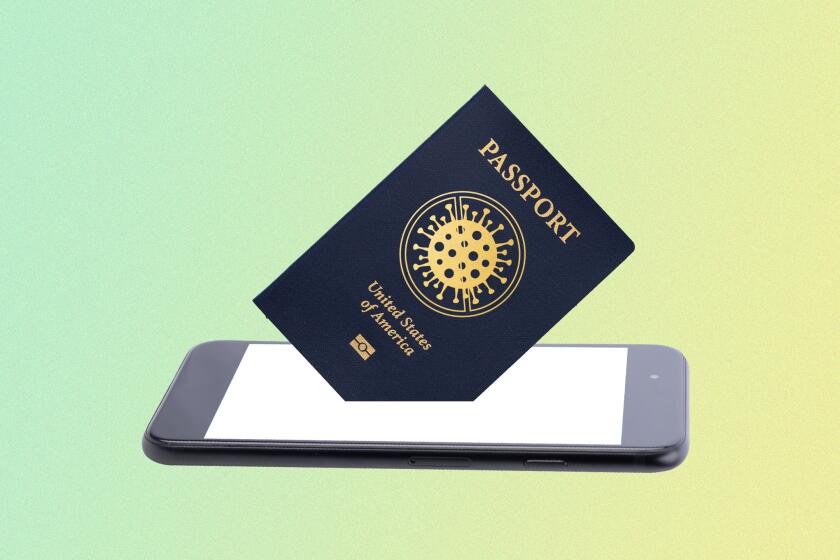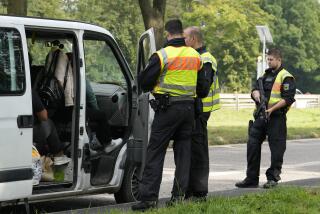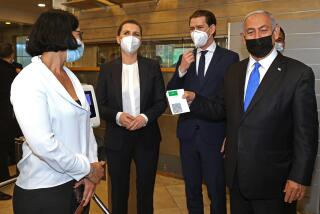Germany, Greece kick off EU’s new COVID-19 vaccination travel certificates

- Share via
ATHENS — Germany, Greece and five other nations of the European Union introduced a COVID-19 vaccination certificate system for travelers Tuesday, weeks ahead of the July 1 rollout of the program across the 27-nation bloc.
The other countries starting early were Bulgaria, the Czech Republic, Denmark, Croatia and Poland, according to the European Commission.
Greece, which depends heavily on tourism, has been pressing for a common vaccination certificate that uses a QR code with advanced security features. The certificates are being issued to people who are fully vaccinated with EU-authorized COVID-19 shots as well as those who have already contracted the coronavirus and developed antibodies, and others who have had a negative PCR test within 72 hours before their arrival.
The documents will have both digital and paper forms. They’ll be free of charge, distributed in the national language plus English and valid in all the bloc’s countries.
“EU citizens are looking forward to traveling again, and they want to do so safely. Having an EU certificate is a crucial step on the way,” EU Health Commissioner Stella Kyriakides said.
Greece’s digital governance minister, Kyriakos Pierrakakis, said easier travel would open up within the EU as nations adopt the new verification standard.
We explain what vaccine passports are, how they work, where they’ve been implemented, and why some people object to them.
“What will happen is that countries will stop issuing certificates using their own convention and adopt the common convention. That will simplify things considerably, because you can imagine the number of bilateral agreements that would otherwise need to be worked out,” Pierrakakis told Skai television.
Kyriakides said that, in the next few weeks, all EU nations need to “fully finalize their national systems to issue, store and verify certificates, so the system is functioning in time for the holiday season.”
Countries will be allowed to add other COVID-19 vaccines to their individual list of acceptable vaccines, including those that have not been formally authorized for use EU-wide.
The EU Commission believes that people who are vaccinated should no longer have to be tested or put into quarantine, regardless of where they are traveling to or from, starting 14 days after receiving their second shot.
Member countries, however, have not yet endorsed that recommendation.
More to Read
Sign up for Essential California
The most important California stories and recommendations in your inbox every morning.
You may occasionally receive promotional content from the Los Angeles Times.











